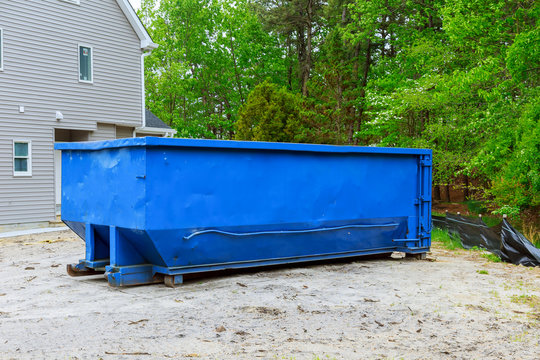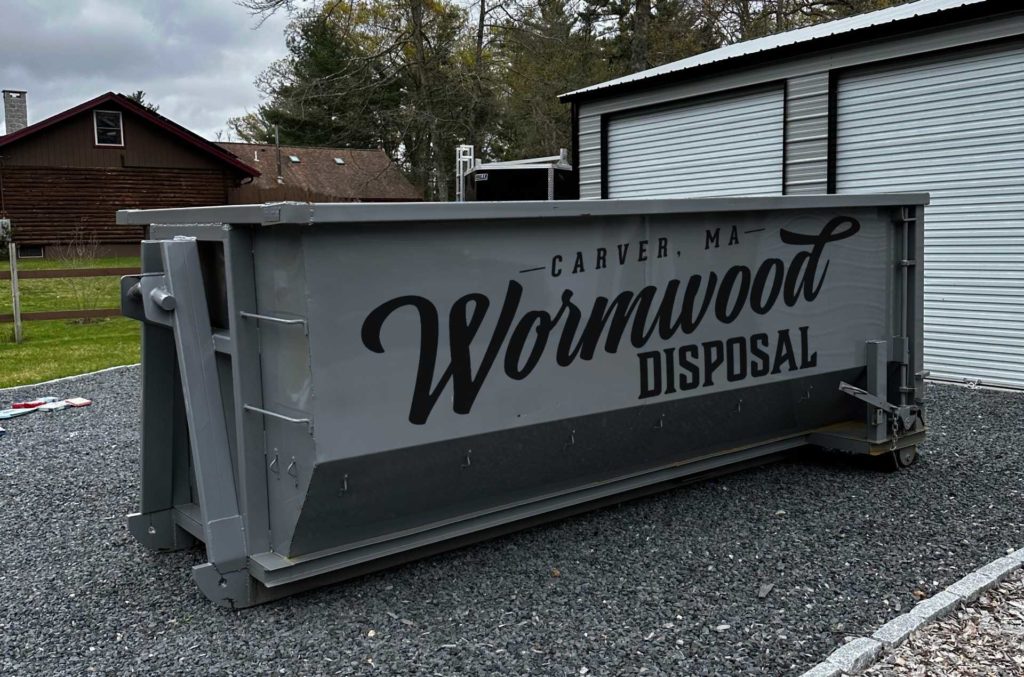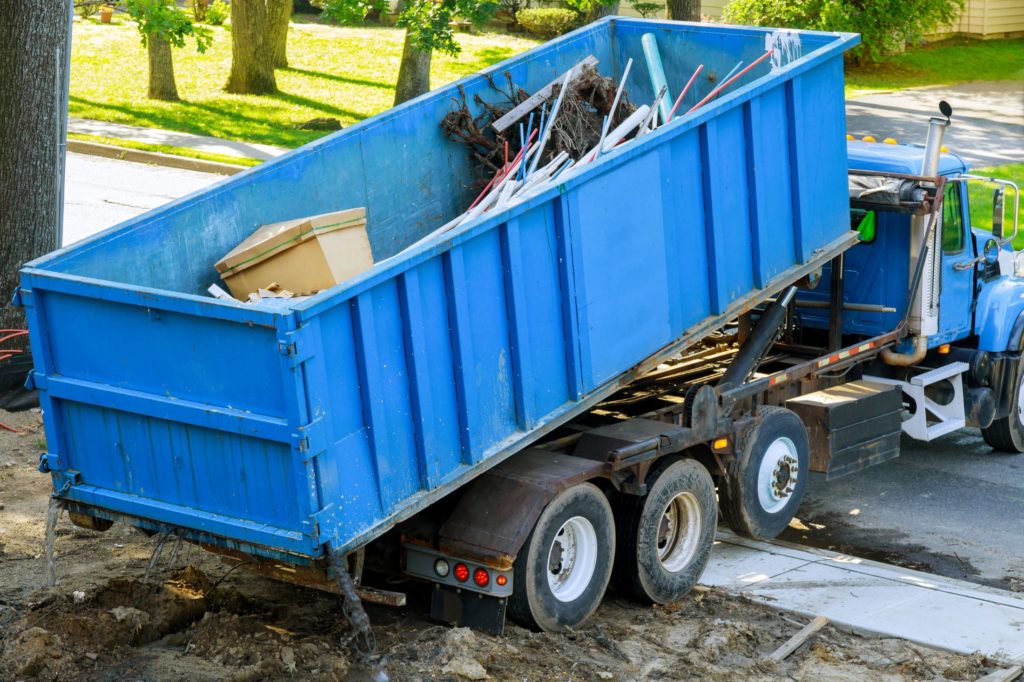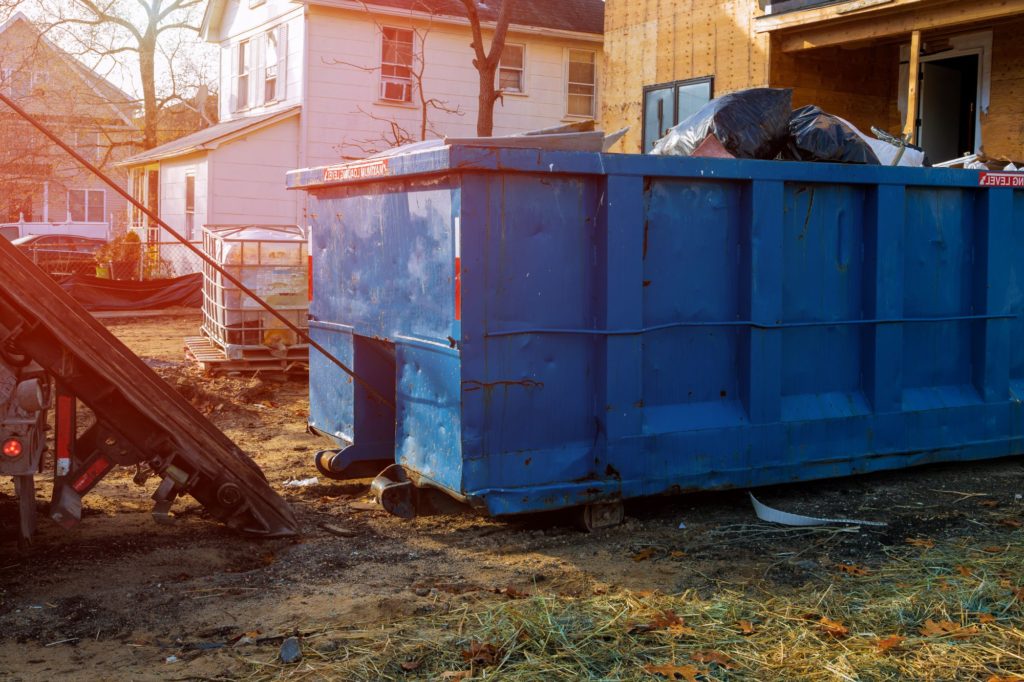The Ultimate Guide to Renting a Dumpster for Your Home Improvement Project
Are you planning a home renovation or dealing with construction debris? Wondering what a dumpster is and why you might need to rent one? Look no further. In this article, we’ll explore everything you need to know about dumpster rental, including what a dumpster is, why you might need to rent one, and how to go about renting one. Whether you’re a homeowner, contractor, or DIY enthusiast, this guide will provide you with all the information you need to make an informed decision about renting a dumpster for your next home improvement project.

Dumpster Definition and Importance for Home Improvement Projects
A dumpster is a large metal container for storing and transporting waste materials. It comes in various sizes and types and is typically rented from waste management companies. Proper waste disposal is an essential aspect of any home improvement project, not only because it’s required by law, but also because it helps maintain a safe and organized project site. Renting a dumpster is an easy and efficient way to manage the waste generated by your home renovation project. With a dumpster, you can easily dispose of construction debris, old furniture, and other unwanted items without needing multiple trips to the landfill. Moreover, it reduces the risk of accidents and injuries caused by debris lying around the site. By renting a dumpster, you can focus on your project and avoid worrying about the waste management aspect.
Types of Dumpsters
When it comes to renting a dumpster, there are three main types to choose from, each designed for specific types of projects and waste:
Roll-Off Dumpsters
Roll-off dumpsters are large, open-top containers that are delivered to your project site by a truck. They are ideal for large-scale home improvement projects, construction sites, and commercial projects that generate a lot of waste. Roll-off dumpsters are available in different sizes ranging from 10 yards to 40 yards.
Front-Load Dumpsters
Front-load dumpsters are smaller, enclosed containers that are commonly used for commercial waste disposal. They are designed to be emptied by a front-loading garbage truck and are available in sizes ranging from 2 yards to 8 yards.
Rear-Load Dumpsters
Rear-load dumpsters are similar to front-load dumpsters, but they are emptied by a rear-loading garbage truck. They are typically used for commercial waste disposal and are available in sizes ranging from 2 yards to 8 yards.
Dumpster Sizes Available for Each Type
The size of the dumpster you need will depend on the size and scope of your home improvement project. Roll-off dumpsters are available in sizes ranging from 10 yards to 40 yards. Front-load and rear-load dumpsters are available in sizes ranging from 2 yards to 8 yards.
Here is a chart showing the dimensions, volume, and weight limit of each dumpster size:
| Dumpster Size | Dimensions | Volume | Weight Limit |
|---|---|---|---|
| 10 yards | 12′ x 8′ x 3.5′ | 10 cubic yards | 2-3 tons |
| 20 yards | 22′ x 8′ x 4′ | 20 cubic yards | 3-4 tons |
| 30 yards | 22′ x 8′ x 6′ | 30 cubic yards | 4-5 tons |
| 40 yards | 22′ x 8′ x 8′ | 40 cubic yards | 5-6 tons |
Examples of Projects Each Type of Dumpster is Best Suited For
Roll-off dumpsters are best suited for large home improvement projects, such as home renovations, roofing projects, and landscaping projects. Front-load and rear-load dumpsters are ideal for commercial waste disposal, such as restaurants, apartment complexes, and office buildings.

Choosing the Right Dumpster Size
Choosing the proper dumpster size is crucial to ensure you have enough space for your waste materials. Estimating the volume and weight of your waste materials is the first step to choosing the right dumpster size. You can use online calculators or consult with a waste management company to get an estimate.
To get an accurate estimate, consider the following factors:
- Type of waste: Different types of waste have varying densities and require different amounts of space. For example, construction debris takes up more space than old furniture.
- The volume of waste: Estimate the volume of your waste materials in cubic yards. This can be done by measuring the length, width, and height of the pile of waste and multiplying the three measurements.
- Weight of waste: Estimate the weight of your waste materials in pounds. This can be done by using a bathroom scale or consulting with a waste management company.
Once you have estimated the volume and weight of your waste materials, you can use the chart above to match the size of the dumpster with your estimated waste volume.
Keep in mind that it is better to choose a slightly larger dumpster than a smaller one to ensure that you have enough space for your waste materials. Additionally, overloading a dumpster can result in additional fees or even fines.

Proper Disposal Methods for Different Types of Waste
To ensure safe and responsible waste disposal, different types of waste require different disposal methods. Here are some guidelines for disposing of common types of waste:
Construction Debris
Construction debris, such as wood, drywall, and concrete, can be disposed of in a dumpster. When disposing of construction debris, it is important to be aware of the weight limit of the dumpster and to avoid exceeding it. Exceeding the weight limit can result in additional fees. Additionally, some materials may require special handling or disposal, so be sure to check with your rental company or local government for any specific regulations.
Appliances
Appliances, such as refrigerators and washing machines, require special disposal methods due to the presence of hazardous materials such as Freon or mercury. It is important to check with your local government or waste management company for proper disposal methods. Some companies may offer appliance pickup services or require appliances to be dropped off at a specific location for disposal.
Hazardous Materials
Hazardous materials, such as paint and chemicals, require specialized disposal methods to ensure they are disposed of safely. It is essential to check with your local and state government to determine if there are any regulations or permits required. Some areas may require a permit for disposing of hazardous waste or have specific guidelines for handling and transporting hazardous materials.
Other Waste
For other types of waste, such as household trash or yard waste, check with your local government for guidelines on disposal methods. Some areas may require specific bags or containers for disposal, while others may offer pickup services or designated drop-off locations.
Regardless of the type of waste, it is important to follow proper disposal methods to protect the environment and public health. Be sure to check with your rental company or local government for any specific regulations or guidelines for proper waste disposal.

Best Practices for Waste Management
One of the best ways to minimize the amount of waste generated during your home improvement project is to consider repurposing or recycling materials. This approach can help reduce the amount of waste that ends up in landfills and reduce your environmental impact. Here are some additional tips for waste management:
Reduce Waste
Before starting your project, assess which materials and items can be reused or donated. Consider whether you can repurpose existing materials, such as cabinets or fixtures, instead of buying new ones. This can help you save money and reduce waste.
Separate Recyclable Materials
When renting a dumpster, it is important to separate recyclable materials from non-recyclable materials to ensure that they are disposed of properly. Some materials, such as metal, cardboard, and plastic, can be recycled. Check with your local recycling center to find out which materials can be recycled in your area.
Proper Disposal
It is important to dispose of hazardous materials, such as chemicals, paint, and batteries, responsibly. These materials should not be disposed of in a dumpster or regular trash pickup. Check with your local waste management company to find out how to dispose of hazardous materials safely.
Composting
If you have yard waste, such as leaves, branches, and grass clippings, consider composting them instead of throwing them away. Composting is an environmentally friendly way to dispose of organic waste and can be used as a natural fertilizer for your garden.
By following these best practices for waste management, you can reduce the amount of waste generated during your home improvement project and contribute to a cleaner, healthier environment.

Dumpster Rental Services
Choosing the right dumpster rental company is crucial for a successful project. When evaluating different rental companies, it is important to consider factors like licensing and insurance, reputation, and pricing. Here are some tips for finding a reliable and trustworthy dumpster rental company:
Finding the Right Company
- Check for licensing and insurance: Choose a company that is licensed and insured to avoid any legal or financial problems.
- Consider reputation: Check online reviews and ratings to see what other customers are saying about the company. Look for a company with a good reputation and a history of satisfied customers.
- Compare pricing: Get quotes from several rental companies to compare pricing. Make sure to ask about any additional fees or charges.
Rental Process
The rental process for a dumpster typically involves several steps, including:
- Choosing the right dumpster size: Consider the size of your project and estimate the amount of waste you will generate to choose the right dumpster size.
- Scheduling delivery and pickup: Choose a delivery date that works for your schedule and arrange for pickup when the dumpster is full.
- Arranging for waste disposal: The rental company will dispose of the waste in an environmentally-friendly manner.
Additional Services
Some dumpster rental companies offer additional services to help make your project easier and more efficient. Here are some examples:
- Recycling: Some companies offer recycling services, which can help reduce the environmental impact of your project.
- Waste management: Some companies offer waste management services, which can help you stay organized and save time.
Reviews and Recommendations
Reading reviews from other customers can help you choose a reliable and trustworthy dumpster rental company. Some of the top dumpster rental companies in the home improvement niche include Waste Management, Republic Services, Allied Waste, and Wormwood Disposal. Look for a company with a good reputation, competitive pricing, and a history of satisfied customers.
Conclusion
In conclusion, renting a dumpster can make your home improvement project more efficient and organized. By choosing the right dumpster size and a reliable waste management company, you can easily manage the waste generated by your project. It is important to follow guidelines for waste disposal and consider ways to reduce waste during your project. This not only helps protect the environment but also ensures that your project site is safe and organized.
When looking for a dumpster rental company, make sure to choose a licensed and insured provider with a good reputation. Do your research, read reviews, and compare prices to find the best fit for your needs. By taking these steps, you can ensure a smooth and stress-free waste disposal process for your home improvement project.
Don’t let waste management hold you back from achieving your dream home. Contact us today to learn more about our dumpster rental services and how we can help you with your next home improvement project.
FAQs
Q: Who needs to rent a dumpster for their home improvement project?
A: Homeowners, contractors, and DIY enthusiasts can benefit from renting a dumpster.
Q: What types of waste can be disposed of in a rented dumpster?
A: Construction debris, old furniture, appliances, and other unwanted items can be disposed of in a rented dumpster.
Q: How do I choose the right size dumpster for my project?
A: Estimate the volume and weight of your waste materials to match the appropriate dumpster size using our chart.
Q: What if I overload the dumpster or need it longer than planned?
A: Additional fees or charges may apply, but you can contact your rental company to extend the rental period or rent an additional dumpster.
Q: Why should I rent a dumpster instead of using my local landfill?
A: Renting a dumpster is more efficient and cost-effective than making multiple trips to the landfill. Plus, it helps keep your project site safe and organized.
Q: How can I ensure proper disposal of hazardous materials?
A: Check with your local government or waste management company for proper disposal methods. Some areas may require permits or have specific guidelines.
As a licensed contractor with over 10 years of experience in the home improvement industry, the author has firsthand knowledge of the importance of proper waste disposal during home renovation projects. With a degree in environmental science, they are passionate about protecting the environment and promoting sustainable waste management practices. The author has also conducted research on the environmental impact of construction waste and has cited studies from reputable sources such as the Environmental Protection Agency and the National Waste & Recycling Association in their writing.
